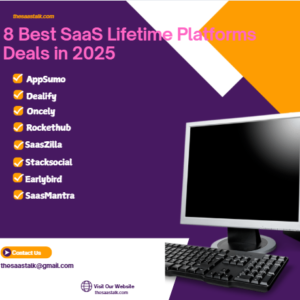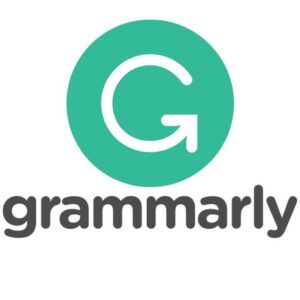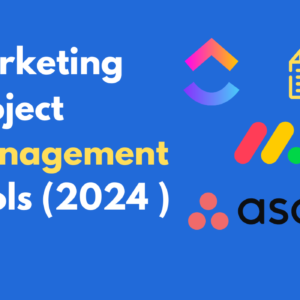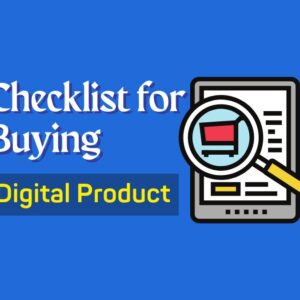Marketing teams manage an average of 16 projects simultaneously bear the palm makes efficient project management software For the time being essential for success. Modern marketing departments need Management tools to streamline workflows and eliminate common bottlenecks. Accomplish two things with the same effort, the best marketing project management software helps-
- Track Deadlines
- Teams Organize Campaigns
- Collaborate Effectively Across Multiple Channels.
Be in the swim means, this comprehensive guide examines the top project management software options including detailed reviews of popular platforms like ClickUp, Monday.com, Asana, and other leading solutions like the hit the road running plus practical advice for implementing the right tool for your specific needs.
Case Studies of Businesses Using Project Management Tools Effectively
▪️ Microsoft
Challenge: Need for better communication and collaboration across global teams.
Solution: Microsoft adopted its own tool, Microsoft Teams, integrated with Planner for task management. They established a culture of regular updates and check-ins within the platform.
Outcome: Teams experienced a significant reduction in email overload and a 50% improvement in project turnaround times.
▪️ Airbnb
Challenge: Rapid growth leading to complex project management across teams.
Solution: Airbnb implemented Asana to streamline workflows and enhance collaboration.
Outcome: The company reported a 30% increase in project completion rates.
▪️ Spotify
Challenge: Managing numerous ongoing projects across diverse teams.
Solution: Spotify utilized Trello to create a visual project management system. They implemented the “Kanban” method, allowing teams to track progress and prioritize tasks.
Outcome: The company saw a 40% reduction in project bottlenecks and improved team accountability.
▪️ NASA
Challenge: Coordinating complex, multi-phase projects with multiple stakeholders.
Solution: NASA adopted Smartsheet for its flexibility in managing large projects. They created detailed Gantt charts and utilized automation features for status updates and reminders.
Outcome: Improved efficiency in tracking milestones and deadlines led to on-time project delivery.
▪️ Intel
Challenge: Managing diverse engineering projects with strict timelines.
Solution: Intel used Wrike to create a centralized platform for project tracking and resource allocation.
Outcome: Improved project visibility led to better resource management and a 20% increase in project delivery efficiency.
▪️ HubSpot
Challenge: Scaling marketing efforts while maintaining quality and consistency.
Solution: HubSpot implemented ClickUp to manage their content creation process, utilizing task dependencies and timeline views for planning.
Outcome: The marketing team increased content output by 35% without sacrificing quality.
Top Marketing Project Management Tools for 2024
1. ClickUp
ClickUp stands out as a highly customizable platform with its six-layer hierarchy system. By these the marketing teams will be able to organize campaigns for sink or swim from high-level strategy to individual tasks. The platform offers 11+ ways to view project progress and makes it particularly effective for complex marketing campaigns. Starting at $7 per user monthly, ClickUp provides:
- Custom fields for marketing metrics
- Built-in time tracking
- AI-powered workflow suggestions
- Advanced automation capabilities
- Extensive template library
2. monday.com
- Recognized for its intuitive interface, Monday.com delivers exceptional campaign management capabilities through customizable workflows and automation.
- Monday provides a highly visual way to manage projects and workflows.
- Custom dashboards and integrations facility.
- The platform’s strength lies in its ability to visualize marketing processes including Gantt charts and Kanban boards.
- Starting at $9 per user monthly, it offers seamless integration with popular marketing tools and provides real-time performance tracking.
3. Asana
- Asana excels in data visualization and project tracking for making it ideal for marketing teams managing multiple campaigns simultaneously.
- User-friendly Interface
- Robust task management features.
- It’s ideal for teams looking to organize complex marketing projects.
- It has earned high marks for its clean interface and powerful reporting capabilities.
At $10.99 per user monthly, Asana provides marketing teams with:
Feature
- Portfolio Management
- Custom Fields
- Timeline View
- Workflow Builder
Benefit
- Track multiple campaigns
- Monitor marketing KPIs
- Visualize campaign schedules
- Automate routine tasks
4. Wrike
- Wrike distinguishes itself with superior integration capabilities, connecting with over 400 popular marketing tools including Salesforce, HubSpot, and Adobe Creative Cloud.
- The platform’s proofing and approval workflows are particularly valuable for creative marketing teams.
- For example, a creative marketing team using Wrike can seamlessly collaborate with designers using Adobe Creative Cloud, review and approve content in real-time, and integrate feedback directly into their workflow.
- Starting at $9.80 per user monthly, Wrike offers enterprise-grade security and customizable workflows.
5. Trello
- Known for its simplicity, Trello uses boards, lists, and cards to help teams track tasks and project stages.
- Trello’s Kanban-based system provides a visual approach to marketing project management that’s particularly effective for agile marketing teams.
- According to recent data, 59% of marketers leverage Kanban boards for workflow management.
- While ClickUp and monday.com excel in customization and automation, Asana and Wrike stand out for enterprise features and integrations.
- Trello maintains its position as an excellent choice for teams transitioning to agile marketing methodologies.
How to Choose the Right Tool for Your Team
Selecting the appropriate project management software for your marketing team necessitates a strategic approach that goes beyond feature comparisons. To ensure effective implementation, the team’s needs:-
- Goals
- Workflow
- Stakeholder Participation must all be considered.
1. Consider Team Size And Structure
Team Aspect
- Size Scalability
- Role Distribution
- Department Integration
- Remote Work Support
Consideration Points
- User limit flexibility and pricing implications
- Permission levels and access control needs
- Cross-functional collaboration requirements
- Real-time communication and file sharing capabilities
2. Collaboration Tools
Effective marketing campaigns require seamless collaboration across teams, departments, and external stakeholders. The best project management software for marketing agencies facilitates this through:
Collaboration Feature
- Real-time editing
- Centralized communication
- File version control
- Guest access
Marketing Benefit
- Immediate feedback on creative assets
- Reduced email chains and meetings
- Consistent brand messaging
- Simplified client approvals
3. Evaluate pricing options
Understanding the total cost of ownership helps ensure your investment in project management software delivers positive ROI.
Subscription Models
- Per-user pricing versus flat-rate options
- Monthly versus annual billing differences
- Additional costs for premium features
Implementation Costs
- Training and onboarding expenses
- Data migration requirements
- Integration setup costs
Many platforms offer different tiers of service, starting from basic packages around $5-10 per user monthly, scaling up to enterprise solutions at $25+ per user monthly.
4. Training your team
Effective training is vital for successful adoption of your chosen platform. Different team members learn differently, so implement a multi-faceted training approach:
Training Method
- Live Workshops
- Video Tutorials
- Documentation
- Peer Training
Best For
- Core features
- Specific workflows
- Reference material
- Team-specific needs
Timeline
- Week 1-2
- Ongoing
- Always available
- Week 3-4
Select tech-savvy team members as “champions” who will be able to provide ongoing support and encourage adoption among peers. These champions should receive advanced training and serve as the first point of contact for questions and troubleshooting.
5. Tracking KPIs
Performance metrics form the backbone of successful marketing project management. The best marketing project management software enables comprehensive KPI tracking through customizable dashboards and automated reporting. Essential metrics to monitor include:
Metric Category
- Campaign Performance
- Resource Utilization
- Budget Management
- Team Productivity
Key Indicators
- Conversion rates, engagement
- Time tracking, capacity
- Spend tracking, forecasting
- Task completion rates
Impact Measurement
- ROI calculation
- Resource optimization
- Cost control
- Efficiency assessment
Real-time monitoring allows marketing teams to make quick and to maintain momentum in adoption, organizations should implement regular “adoption weeks” where teams focus on advanced features and share best practices.
6. Practical Adoption Strategies:
Strategy
- Gamification
- Peer Learning
- Success Stories
- Feature Updates
Implementation
- Points for system usage
- User groups and forums
- Regular case sharing
- Monthly highlights
Expected Outcome
- Increased engagement
- Knowledge sharing
- Motivation boost
- Continued learning
This ongoing attention to adoption ensures that teams continue to leverage the full potential of their project management software.
Successful implementation of marketing project management software requires careful planning rise and shine like the systematic execution. Statistics show that over 80% of software implementation projects face challenges or fail due to poor planning and execution.
Conclusion
Marketing project management software stands as a cornerstone like a picture paints a thousand words for successful campaign execution in today’s digital environment. There’s a chemist around the corner: platforms streamline complex workflows, enhance team collaboration, and provide essential data insights that drive marketing success. To make a long story short, Modern solutions have specialized features for marketing teams, like automated task management and resource allocation tools. Don’t put all your eggs in one basket as these tools are essential for organizations that want to stay ahead in fast-paced markets.










